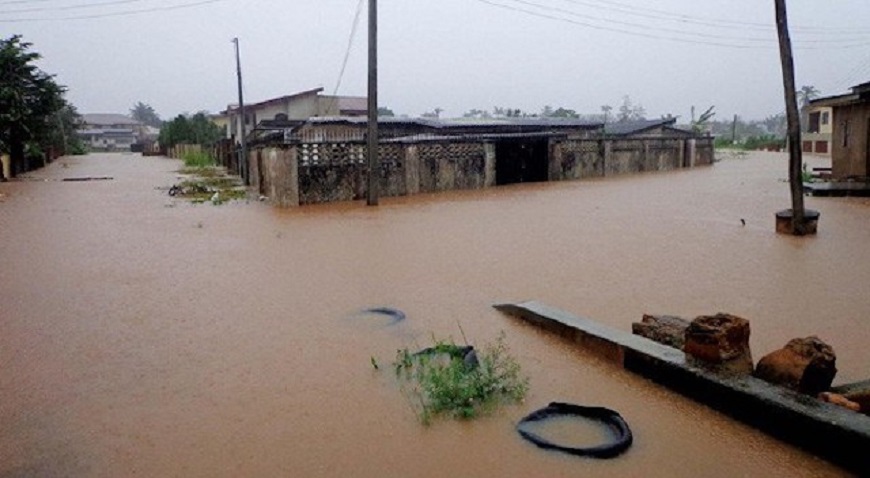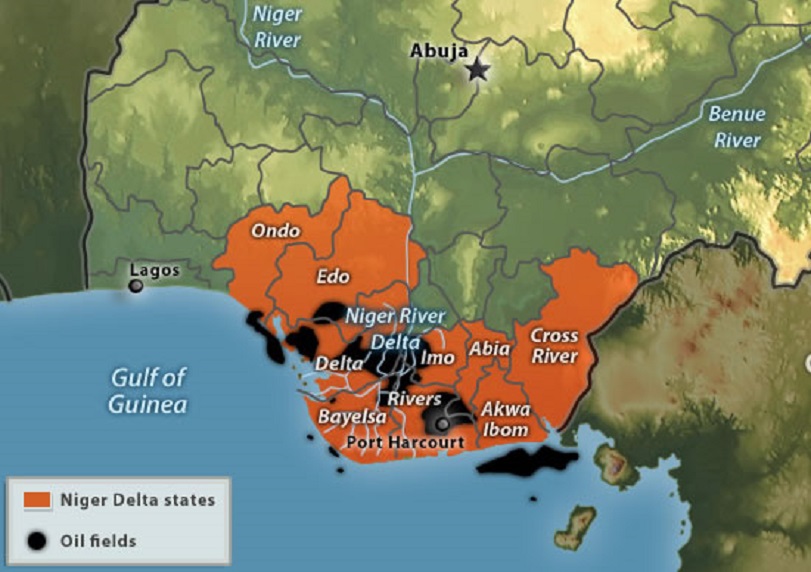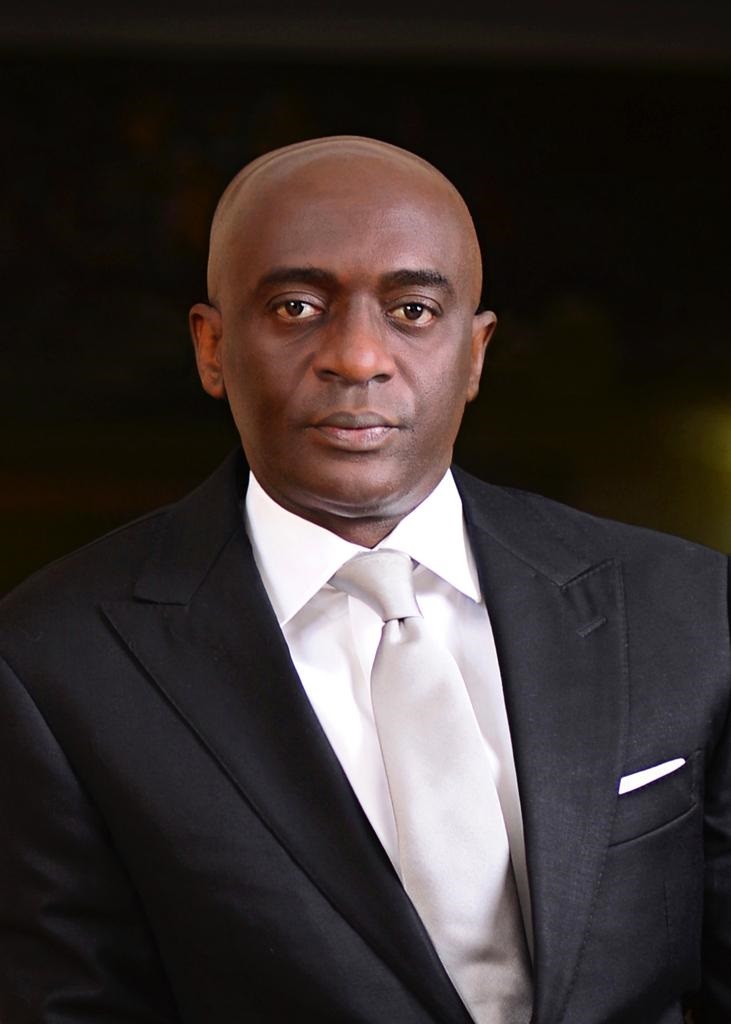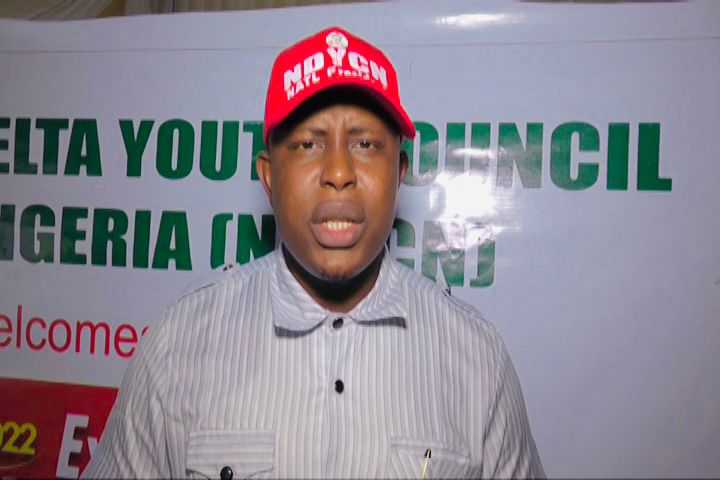Feature/OPED
CEPEJ and the Reality of Niger Delta Underdevelopment Crisis

By Jerome-Mario Utomi
Talking about the Niger Delta region of Nigeria, it is true that today there exists in the Petroleum Industry Act (PIA) which made some far-reaching provisions for the host community’s development such as its demand that any oil prospecting licence or mining lease or an operating company on behalf of joint venture partners (the settlor) is required to contribute 3% of its actual operating expenditure in the immediately preceding calendar year to the host communities development trust fund. This is in addition to the existing contribution of 3% to the Niger Delta Development Commission (NDDC).
It is also true that recently, Professor Yemi Osinbajo, the Vice President of Nigeria, at a function in Lagos noted that the present administration was determined to see through to the completion of all the critical projects in the region.
Once more, we are equally witnesses to the fact that the Minister of Environment, Dr Mohammad Abubakar, after a meeting in Port Harcourt, said his ministry was in talks with key stakeholders in the Niger Delta region on devising a blueprint for alternative ways to preserve, conserve and restore mangrove in the region.
Abubakar, who said the destruction of mangroves was catastrophic to the economy of the nation, noted that the resolution of the meeting in Port Harcourt was to focus on starting with short term goals of seeking alternative means of making people stay away from mangrove destruction.
However, if a serious statistical study is carried out about the area, it may be ‘amazing’ how the Niger Delta region has, and despite all these moves remained a backward and degraded, coastal region occasioned by crude oil exploration, exploitation and production with no better chance of development as the government is not ready to learn from its past mistakes which bother on the adoption of a non-participatory approach to development that strips the people of the region their sense of ownership over their own issues.
And as a consequence, cast a long dark shadow on efforts to improve the wellbeing and economic development of the region’s individuals, peoples, and communities while resulting in a state where the region’s communal right to a clean environment and access to clean water supplies was brazenly violated. And fierce war raged in the region between ethnic and social forces over the ownership and control of oil resources in the Niger Delta.
Bringing this ugly account to the fore is a recently well-timed statement/alarm raised by the Centre for Peace and Environmental Justice (CEPEJ), Comrade Mulade Sheriff, calling on the Federal Government of Nigeria not to hands-off Niger Delta region until it completes the environmental remediation and socio-economic rejuvenation of the zone devastated by long periods of oil spill neglect, crude oil exploration/exploitation, deprivation and marginalization.
The group spoke recently in Warri, Delta State against the backdrop of speculations, claims and counterclaims in some quarters regarding the advent of the PIA that the federal government will abandon its responsibility to remediate the environment.
It was argued that the PIA and allocation of 3% to host communities do not mean the federal government should shy aware of its primary responsibility of providing basic amenities for and care for her citizens, especially when the government is the main beneficiary of oil production proceeds from the region and the cause of degradation of the Niger Delta environment.
The environmental rights group, while speaking with newsmen in Warri, asserted that it is the responsibility of the Nigeria government and oil companies to remediate the degraded environment, pay adequate compensation to affected host communities and rejuvenate the lost socio-economic wellbeing of Niger Deltans for the impoverished state caused by crude oil exploration activities engineered by the federal government.
CEPEJ drew the attention of the federal government and other relevant agencies to the fact that the region has long been degraded and the environment devastated before the emergence of PIA, hence, it cannot and should not hide under the Act to further marginalize the region, rather, it should be directly involved in the remediation and socio-economic rejuvenation of the region.
Remediation and rejuvenation of the socio-economic life of the people in the Niger Delta region of the country is a responsibility that is extremely important which successive administrations have failed to address and spent far too long a time not only to attend to but also to accomplish.
In explaining the importance of the PIA to host communities, CEPEJ said “the Law or Act cannot take retrospective effect on the people it’s meant to benefit and Nigerians should not lose sight of the beneficial reality of the Act.
“Before the federal government can hands off the Niger Delta, it must complete its environmental remediation as well as socioeconomic rejuvenation of the environment which is what the federal government owns the people living in the region.
“It will be unethical for the federal government to hands off at a time when the world is in agreement in terms of citizen and communal right of the people, and that it is the communal rights of the Niger Delta people to have a clean environment and access to clean water supplies which are being violated by Nigeria government and oil-producing companies operating in the region.”
It also asserts that, by the admission of oil companies to the region, ‘the oil industries have abandoned thousands of polluted sites in the region which need to be identified and studied in detail, He, therefore, called on environmental experts to go the extra mile to identify these spots, study them and make cases for the affected communities.
While complaining about the negative effect of oil operations in the Niger Delta, CEPEJ said due to degradation of the environment, aquatic organism and water supply sources are being adversely affected including the health and wellbeing of the people which has resulted in high mortality.
He also said that the present environmental state caused by oil companies and their operational activities need to be recovered while affected communities are adequately compensated for their losses.
Referencing what is obtainable in other oil-producing nations around the world, the rights group said, “We expect the federal government to apply what is obtainable in countries such as the Netherlands where the Dutch government requires all operators to restore their areas of operation back to how nature intended, which means all infrastructures used for operations during active production will be removed at the end of production and proper maintenance of the environment need to be carried out.”
“He said this method of operation is referred to “abandonment liability” which the operating company need to carry out at the end of active operation, and that is what he expects the Nigeria government to emulate.
On the management of the 3% to host communities, the group submitted that the 13 per cent oil derivation fund and the PIA fund are meant to address the environmental, ecological and infrastructural development issues of oil communities and “we expect that should be done to better the lives of people living in oil and gas host communities.”
He further insisted that the 3 per cent PIA fund should be managed by the Host Community Trust Fund as stipulated by the PIA.
It concluded that leaving the funds under the hands of Ministers or State Governors to control or even nominate candidates to manage the fund for host communities might lead to its being mismanaged the same way the 13% derivation fund allocated to oil and gas producing states for the development of oil and gas host communities was misappropriated.
To avoid a repeat of such stories, the host communities should nominate credible individuals to manage the Host Community Trust Fund as stipulated in the PIA for speedy infrastructural development and environmentally friendly condition of the oil-rich region of Nigeria.
Indeed, CEPEJ, in my view, may not be wrong.
Jerome-Mario Utomi is the Programme Coordinator (Media and Public Policy), Social and Economic Justice Advocacy (SEJA), Lagos. He could be reached via je*********@***oo.com/08032725374
Feature/OPED
How Christians Can Stay Connected to Their Faith During This Lenten Period

It’s that time of year again, when Christians come together in fasting and prayer. Whether observing the traditional Lent or entering a focused period of reflection, it’s a chance to connect more deeply with God, and for many, this season even sets the tone for the year ahead.
Of course, staying focused isn’t always easy. Life has a way of throwing distractions your way, a nosy neighbour, a bus driver who refuses to give you your change, or that colleague testing your patience. Keeping your peace takes intention, and turning off the noise and staying on course requires an act of devotion.
Fasting is meant to create a quiet space in your life, but if that space isn’t filled with something meaningful, old habits can creep back in. Sustaining that focus requires reinforcement beyond physical gatherings, and one way to do so is to tune in to faith-based programming to remain spiritually aligned throughout the period and beyond.
On GOtv, Christian channels such as Dove TV channel 113, Faith TV and Trace Gospel provide sermons, worship experiences and teachings that echo what is being practised in churches across the country.
From intentional conversations on Faith TV on GOtv channel 110 to true worship on Trace Gospel on channel 47, these channels provide nurturing content rooted in biblical teaching, worship, and life application. Viewers are met with inspiring sermons, reflections on scripture, and worship sessions that help form a rhythm of devotion. During fasting periods, this kind of consistent spiritual input becomes a source of encouragement, helping believers stay anchored in prayer and mindful of God’s presence throughout their daily routines.
To catch all these channels and more, simply subscribe, upgrade, or reconnect by downloading the MyGOtv App or dialling *288#. You can also stream anytime with the GOtv Stream App.
Plus, with the We Got You offer, available until 28th February 2026, subscribers automatically upgrade to the next package at no extra cost, giving you access to more channels this season.
Feature/OPED
Turning Stolen Hardware into a Data Dead-End

By Apu Pavithran
In Johannesburg, the “city of gold,” the most valuable resource being mined isn’t underground; it’s in the pockets of your employees.
With an average of 189 cellphones reported stolen daily in South Africa, Gauteng province has become the hub of a growing enterprise risk landscape.
For IT leaders across the continent, a “lost phone” is rarely a matter of a misplaced device. It is frequently the result of a coordinated “snatch and grab,” where the hardware is incidental, and corporate data is the true objective.
Industry reports show that 68% of company-owned device breaches stem from lost or stolen hardware. In this context, treating mobile security as a “nice-to-have” insurance policy is no longer an option. It must function as an operational control designed for inevitability.
In the City of Gold, Data Is the Real Prize
When a fintech agent’s device vanishes, the $300 handset cost is a rounding error. The real exposure lies in what that device represents: authorised access to enterprise systems, financial tools, customer data, and internal networks.
Attackers typically pursue one of two outcomes: a quick wipe for resale on the secondary market or, far more dangerously, a deep dive into corporate apps to extract liquid assets or sellable data.
Clearly, many organisations operate under the dangerous assumption that default manufacturer security is sufficient. In reality, a PIN or fingerprint is a flimsy barrier if a device is misconfigured or snatched while unlocked. Once an attacker gets in, they aren’t just holding a phone; they are holding the keys to copy data, reset passwords, or even access admin tools.
The risk intensifies when identity-verification systems are tied directly to the compromised device. Multi-Factor Authentication (MFA), widely regarded as a gold standard, can become a vulnerability if the authentication factor and the primary access point reside on the same compromised device. In such cases, the attacker may not just have a phone; they now have a valid digital identity.
The exposure does not end at authentication. It expands with the structure of the modern workforce.
65% of African SMEs and startups now operate distributed teams. The Bring Your Own Device (BYOD) culture has left many IT departments blind to the health of their fleet, as personal devices may be outdated or jailbroken without any easy way to know.
Device theft is not new in Africa. High-profile incidents, including stolen government hardware, reinforce a simple truth: physical loss is inevitable. The real measure of resilience is whether that loss has any residual value. You may not stop the theft. But you can eliminate the reward.
Theft Is Inevitable, Exposure is Not
If theft cannot always be prevented, systems must be designed so that stolen devices yield nothing of consequence. This shift requires structured, automated controls designed to contain risk the moment loss occurs.
Develop an Incident Response Plan (IRP)
The moment a device is reported missing, predefined actions should trigger automatically: access revocation, session termination, credential reset and remote lock or wipe.
However, such technical playbooks are only as fast as the people who trigger them. Employees must be trained as the first line of defence —not just in the use of strong PINs and biometrics, but in the critical culture of immediate reporting. In high-risk environments, containment windows are measured in minutes, not hours.
Audit and Monitor the Fleet Regularly
Control begins with visibility. Without a continuous, comprehensive audit, IT teams are left responding to incidents after damage has occurred.
Opting for tools like Endpoint Detection and Response (EDR) allows IT teams to spot subtle, suspicious activities or unusual access attempts that signal a compromised device.
Review Device Security Policies
Security controls must be enforced at the management layer, not left to user discretion. Encryption, patch updates and screen-lock policies should be mandatory across corporate devices.
In BYOD environments, ownership-aware policies are essential. Corporate data must remain governed by enterprise controls regardless of device ownership.
Decouple Identity from the Device
Legacy SMS-based authentication models introduce avoidable risk when the authentication channel resides on the compromised handset. Stronger identity models, including hardware tokens, reduce this dependency.
At the same time, native anti-theft features introduced by Apple and Google, such as behavioural theft detection and enforced security delays, add valuable defensive layers. These controls should be embedded into enterprise baselines rather than treated as optional enhancements.
When Stolen Hardware Becomes Worthless
With POPIA penalties now reaching up to R10 million or a decade of imprisonment for serious data loss offences, the Information Regulator has made one thing clear: liability is strict, and the financial fallout is absolute. Yet, a PwC survey reveals a staggering gap: only 28% of South African organisations are prioritising proactive security over reactive firefighting.
At the same time, the continent is battling a massive cybersecurity skills shortage. Enterprises simply do not have the boots on the ground to manually patch every vulnerability or chase every “lost” terminal. In this climate, the only viable path is to automate the defence of your data.
Modern mobile device management (MDM) platforms provide this automation layer.
In field operations, “where” is the first indicator of “what.” If a tablet assigned to a Cape Town district suddenly pings on a highway heading out of the city, you don’t need a notification an hour later—you need an immediate response. An effective MDM system offers geofencing capabilities, automatically triggering a remote lock when devices breach predefined zones.
On Supervised iOS and Android Enterprise devices, enforced Factory Reset Protection (FRP) ensures that even after a forced wipe, the device cannot be reactivated without organisational credentials, eliminating resale value.
For BYOD environments, we cannot ignore the fear that corporate oversight equates to a digital invasion of personal lives. However, containerization through managed Work Profiles creates a secure boundary between corporate and personal data. This enables selective wipe capabilities, removing enterprise assets without intruding on personal privacy.
When integrated with identity providers, device posture and user identity can be evaluated together through multi-condition compliance rules. Access can then be granted, restricted, or revoked based on real-time risk signals.
Platforms built around unified endpoint management and identity integration enable this model of control. At Hexnode, this convergence of device governance and identity enforcement forms the foundation of a proactive security mandate. It transforms mobile fleets from distributed risk points into centrally controlled assets.
In high-risk environments, security cannot be passive. The goal is not recovery. It is irrelevant, ensuring that once a device leaves authorised hands, it holds no data, no identity leverage, and no operational value.
Apu Pavithran is the CEO and founder of Hexnode
Feature/OPED
Daniel Koussou Highlights Self-Awareness as Key to Business Success

By Adedapo Adesanya
At a time when young entrepreneurs are reshaping global industries—including the traditionally capital-intensive oil and gas sector—Ambassador Daniel Koussou has emerged as a compelling example of how resilience, strategic foresight, and disciplined execution can transform modest beginnings into a thriving business conglomerate.
Koussou, who is the chairman of the Nigeria Chapter of the International Human Rights Observatory-Africa (IHRO-Africa), currently heads the Committee on Economic Diplomacy, Trade and Investment for the forum’s Nigeria chapter. He is one of the young entrepreneurs instilling a culture of nation-building and leadership dynamics that are key to the nation’s transformation in the new millennium.
The entrepreneurial landscape in Nigeria is rapidly evolving, with leaders like Koussou paving the way for innovation and growth, and changing the face of the global business climate. Being enthusiastic about entrepreneurship, Koussou notes that “the best thing that can happen to any entrepreneur is to start chasing their dreams as early as possible. One of the first things I realised in life is self-awareness. If you want to connect the dots, you must start early and know your purpose.”
Successful business people are passionate about their business and stubbornly driven to succeed. Koussou stresses the importance of persistence and resilience. He says he realised early that he had a ‘calling’ and pursued it with all his strength, “working long weekends and into the night, giving up all but necessary expenditures, and pressing on through severe setbacks.”
However, he clarifies that what accounted for an early success is not just tenacity but also the ability to adapt, to recognise and respond to rapidly changing markets and unexpected events.
Ambassador Koussou is the CEO of Dau-O GIK Oil and Gas Limited, an indigenous oil and natural gas company with a global outlook, delivering solutions that power industries, strengthen communities, and fuel progress. The firm’s operations span exploration, production, refining, and distribution.
Recognising the value of strategic alliances, Koussou partners with business like-minds, a move that significantly bolsters Dau-O GIK’s credibility and capacity in the oil industry. This partnership exemplifies the importance of building strong networks and collaborations.
The astute businessman, who was recently nominated by the African Union’s Agenda 2063 as AU Special Envoy on Oil and Gas (Continental), admonishes young entrepreneurs to be disciplined and firm in their decision-making, a quality he attributed to his success as a player in the oil and gas sector. By embracing opportunities, building strong partnerships, and maintaining a commitment to excellence, Koussou has not only achieved personal success but has also set a benchmark for future generations of African entrepreneurs.
His journey serves as a powerful reminder that with determination and vision, success is within reach.
-

 Feature/OPED6 years ago
Feature/OPED6 years agoDavos was Different this year
-
Travel/Tourism10 years ago
Lagos Seals Western Lodge Hotel In Ikorodu
-

 Showbiz3 years ago
Showbiz3 years agoEstranged Lover Releases Videos of Empress Njamah Bathing
-

 Banking8 years ago
Banking8 years agoSort Codes of GTBank Branches in Nigeria
-

 Economy3 years ago
Economy3 years agoSubsidy Removal: CNG at N130 Per Litre Cheaper Than Petrol—IPMAN
-

 Banking3 years ago
Banking3 years agoSort Codes of UBA Branches in Nigeria
-

 Banking3 years ago
Banking3 years agoFirst Bank Announces Planned Downtime
-

 Sports3 years ago
Sports3 years agoHighest Paid Nigerian Footballer – How Much Do Nigerian Footballers Earn


















